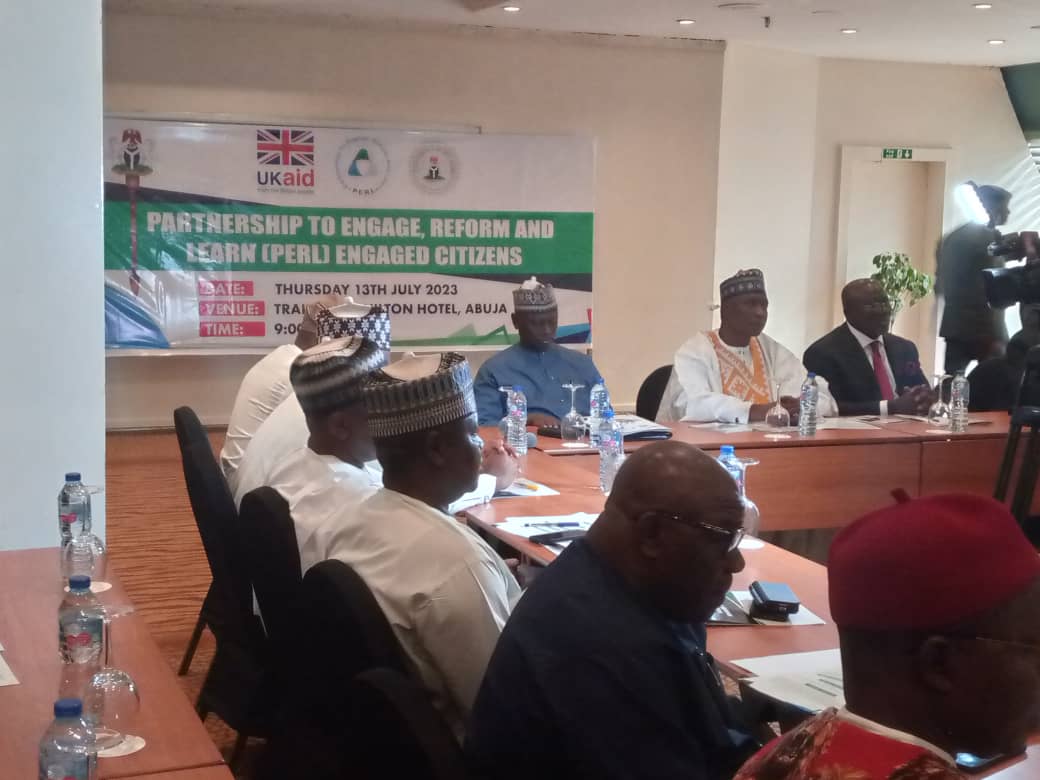Conference championed financial autonomy for state legislatures – Chairman
The Chairman Conference of Speakers of State Legislatures of Nigeria, Abubakar Suleiman, says the conference had been at the forefront of agitation for financial autonomy for state houses of assemblies in the country since 2010. Suleiman who is also the speaker of the Bauchi state assembly, said the journey had been torturous and worthwhile. He […]

The Chairman Conference of Speakers of State Legislatures of Nigeria, Abubakar Suleiman, says the conference had been at the forefront of agitation for financial autonomy for state houses of assemblies in the country since 2010.
Suleiman who is also the speaker of the Bauchi state assembly, said the journey had been torturous and worthwhile.
He spoke on Thursday in Abuja at the induction for speakers of state houses of assembly in Nigeria.
He, however, said the assent on the law by the immediate past president, Mohammadu Buhari had granted the state assemblies the needed financial independence.
You’re pained Buhari didn’t patronise you, Femi Adesina blasts Bishop Kukah
Shettima, Tinubu’s wife mark Great Green Wall Day
Suleiman noted that the autonomy granted to state assemblies would help deepen the arm of government at state level, adding that it would also propel good governance in the state.
“The Conference has been at the forefront championing for the financial autonomy for state legislatures. And having lost it in the first amendment exercise in 2010. The Conference re-strategized worked with relevant stakeholders and partners such as the National Assembly and the PERL-ECP in the subsequent amendment exercises and thanks to the collective efforts of our partners and the State Houses of Assembly, we achieved our goal of having state legislative financial autonomy in the 4th Alteration exercise.
“However, not until Mr. President gave presidential assent to the 4 alterations in the year 2018 that were dawned on us the challenge of implementation that would later reared its ugly head. In other words, implementation of the financial autonomy as granted by the Constitution became an issue. States were not able to implement it due to what the executive arm at the state level called lack of modality for implementation. In order to get out of the implementation quagmire, we further engaged the Presidency, and the then President issued Executive Order 10 in order to ensure compliance of the Constitutional provisions but the Executive Order was challenged and defeated in court by the Nigeria Governors’ Forum
“We engaged other stakeholders such as Nigeria Governors Forum, Office of the Chief of Staff to the President, Presidential Committee on the Implementation of Financial Autonomy Office of the Minister of Justice and Attorney General of the Federation: Office of the Hon Minister of Labour and Productivity to mention but a few. Collectively, we agreed on a modality which eventually constituted our Memorandum for yet another exercise of amendment (the 5 Alteration to the Constitution). And having been passed by both the National Assembly and the State Houses of Assembly, President Buhari on the 16 March, 2023 gave presidential assents to the consequential amendment (modality for implementation) on the Financial Autonomy for the State Houses of Assembly and by that, again, we ran another course for constitution review exercise that ultimately granted yet another approval for Financial Autonomy.”
Dr. Chris Pycroft, Development Director, United Kingdom High Commission, said the executive arm of government in the state must be held accountable to help citizens enjoy efficient governance.
“The state legislators are a vital link between the state and its citizens. They have a crucial role to play in delivering good governance to the people. They must continue to play their roles effectively by holding the executive to account,” Pycroft said.
